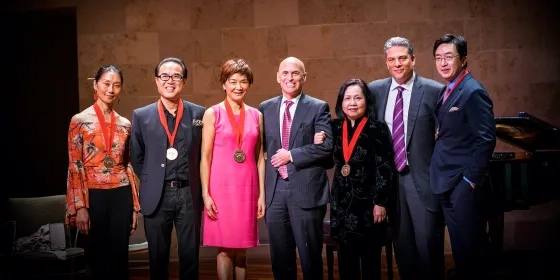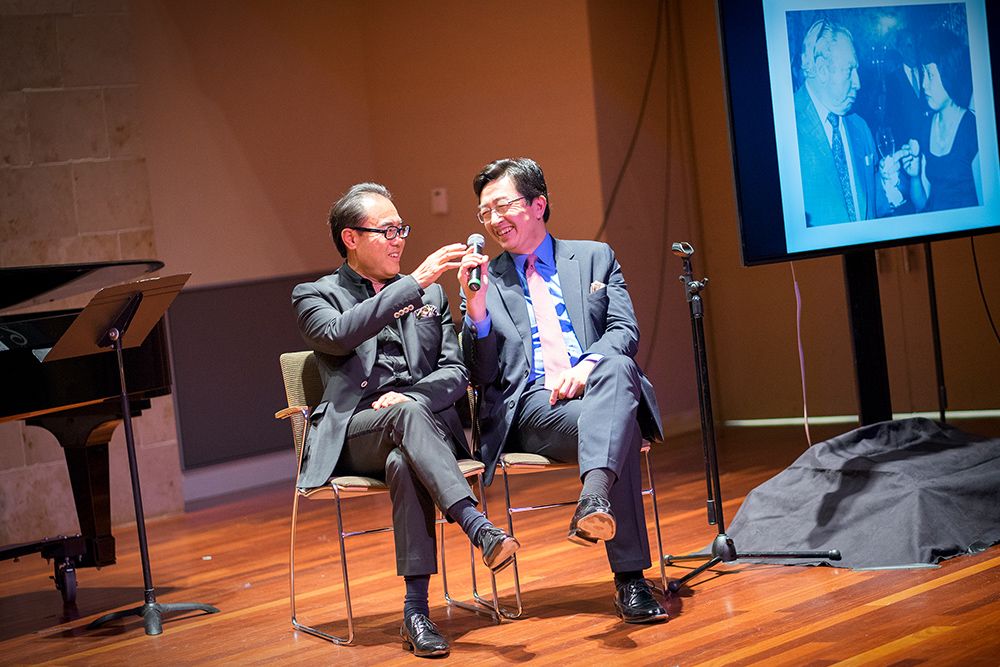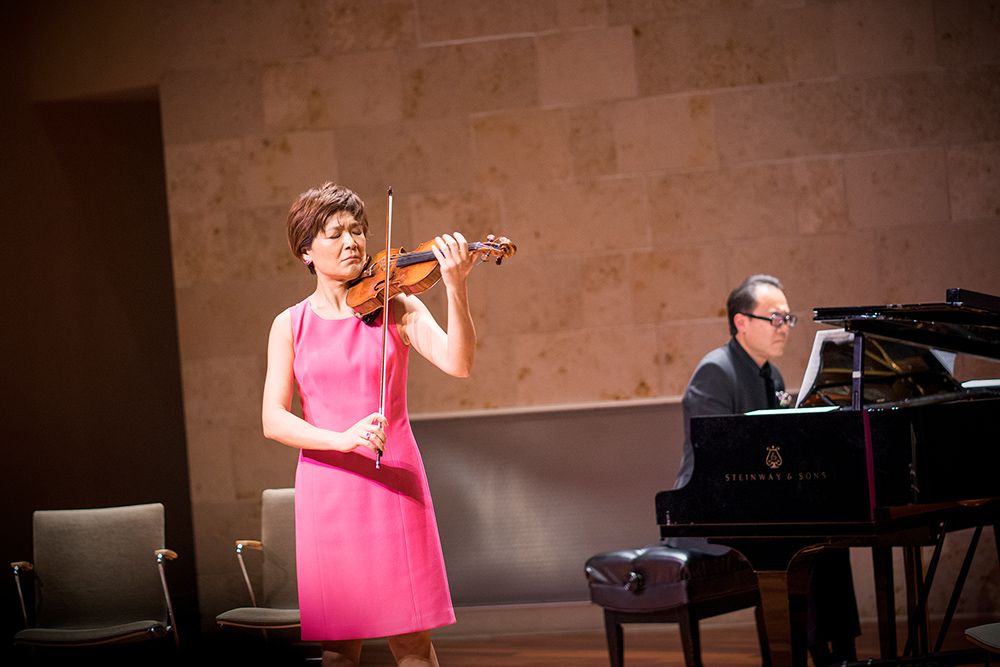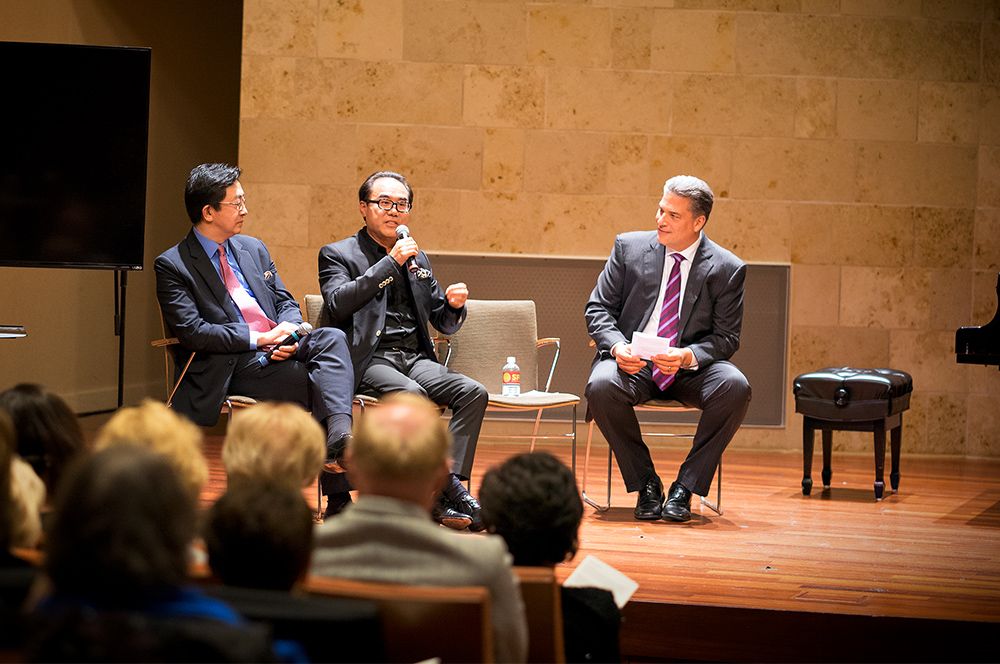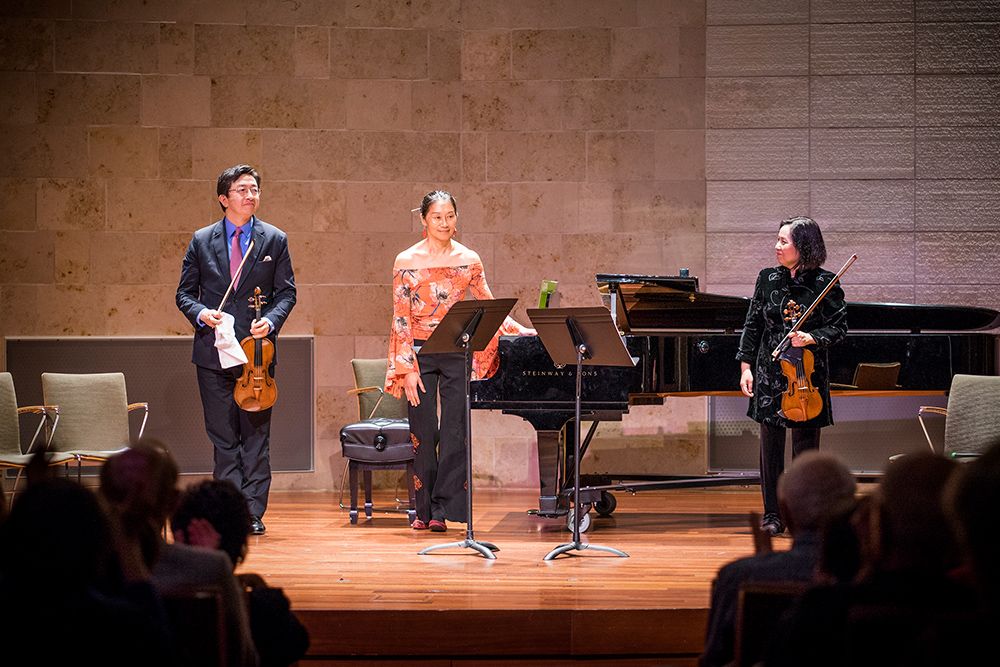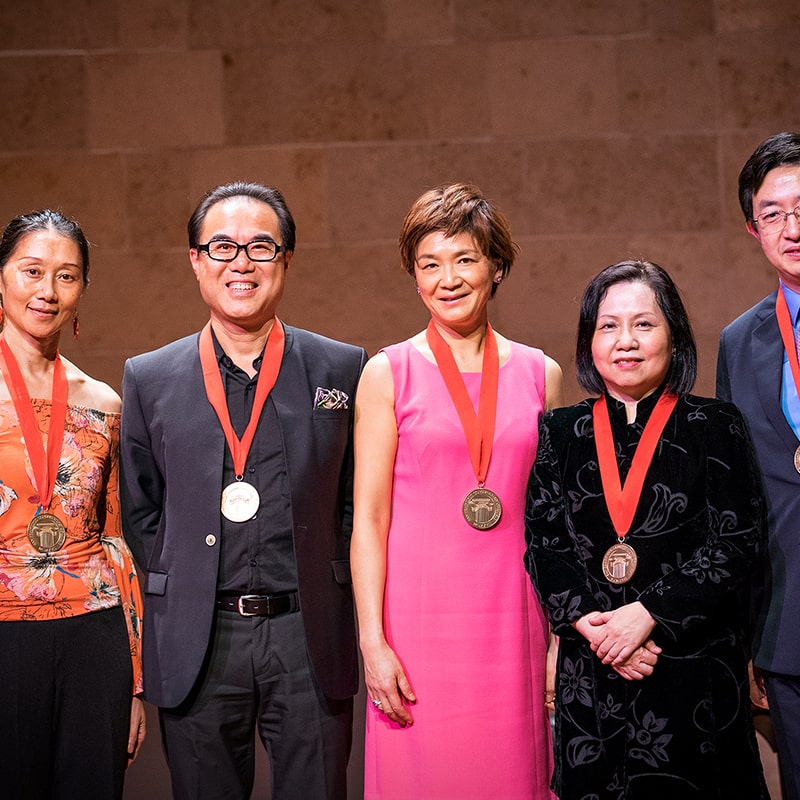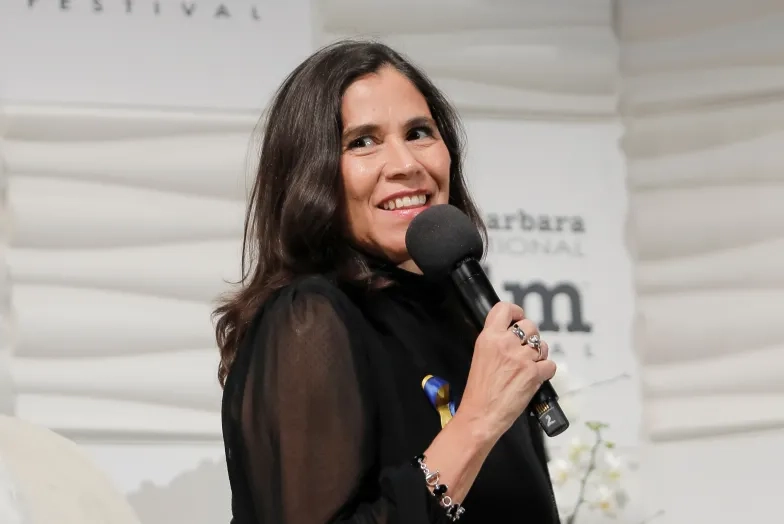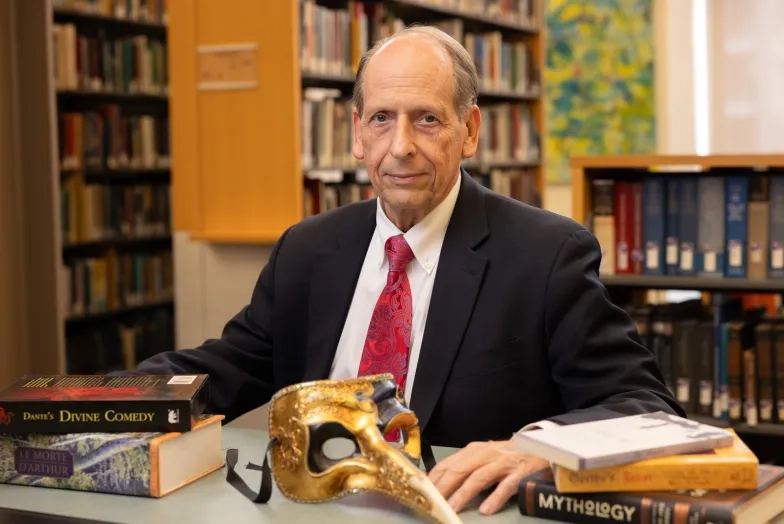Shanghai Exchange Students Reunite at SFCM
In 1981, five students from the Shanghai Conservatory of Music took part in an exchange program that brought them to study at the San Francisco Conservatory of Music—only one year after leaders from San Francisco and Shanghai signed the first Sister City agreement between the United States and China. It was a show of cultural exchange and diplomacy that blossomed from the United States’ burgeoning ties with the People’s Republic of China. Since that time, SFCM has enrolled hundreds of Chinese students, a product of the close kinship both conservatories share. After more than 35 years, those five students reunited at SFCM on Monday, February 12 to take part in a talk and performance that highlighted the staying power of the Conservatory’s alumni relationships and international connections.
The five alumni—pianists Tian Jiang and Paner Ying and violinists Weigang Li, Chunming Mo, and Jue Yao—along with SFCM Presidential Alumni Council Chair Gary Rust ’83, sat on the stage of Sol Joseph Recital Hall recounting their experiences upon arriving in America. Setting up the scene with the late SFCM president Milton Salkind picking up the new arrivals in his station wagon at the airport, SFCM President David H. Stull asked about the students’ first impressions after arriving in San Francisco.
Paner Ying elicited a some laughter as she deadpanned her response. “People say memory comes from smells,” she said. “I think my first impression was from the air—coffee and doughnuts.”
The alumni also commented on the opportunity this exchange gave to show Westerners a clearer picture of Chinese culture and to learn from each other. “China itself has a very rich culture,” said Jue Yao. “When we were growing up, the country was so closed. Right now, China is getting bigger and we are trying to bring out our culture to the world so everybody can have a different view … For the future, ‘East meets West’ is a very good trend.”
After conversing about the differences in everything from cuisine to musical performance—not to mention cultural idiosyncrasies—the students continued with performances that were kicked off by Li and Jiang at the start of the event. Yao and Jiang performed works by Paganini and Kreisler and Jiang came back to the stage to give a spirited rendition of Chopin’s Scherzo No. 2 in B-flat Minor. Ying performed Joseph Kosma’s Autumn Leaves and Li and Mo joined her at the end of the concert to perform Shostakovich’s Five Pieces for two violins and piano.
It was clear from the start the music never left the lives of these five alumni. Jiang travels the world as a concert soloist; Li is a founding member and first violinist of the Shanghai Quartet; Mo is a member of the San Francisco Symphony; Yao is the recipient of numerous awards and is the founder of the Jue Yao Music Academy and the Hong Kong String Orchestra; and Ying has performed as a soloist and with ensembles in North America and Asia and currently teaches in New York.
“When I heard the about experiences of the five alumni from Shanghai, I thought they sounded like my own—being shy and scared to talk to my classmates in English,” said Lin Zeng ’18. “I missed Chinese food but didn’t know how to make it. When I overcame the communication problem and learned to cook Chinese food myself, I thought it was great progress. My experience has given me the courage to face the future, and I believe I can overcome any challenge. I think their experiences also gave them courage. It makes me feel that we international students, both former and current, benefit from each other’s company.”
“It was such a treat to share in the reunion of the original five students from Shanghai,” remarked Gary Rust. “We were all students together when they arrived in 1981. More than 35 years later, the stories they told on stage resonated more than ever, especially in view of the rich history of international cultural exchange that is central to life at SFCM. These shared experiences now span generations, and it's important that we continue to cultivate a vibrant international student body. I'm especially grateful to the Cha Foundation for their ongoing support of cultural exchange with China.”
In closing, President Stull presented each of the alumni with SFCM’s Distinguished Alumni Award, a medal typically given to only one or two alumni each year. Through the initial exchange program with these former students, the Conservatory was able to begin a lasting relationship with China that has only strengthened over the decades. Their recognition as pioneers of cultural ties between America and Asia is more than deserved.
